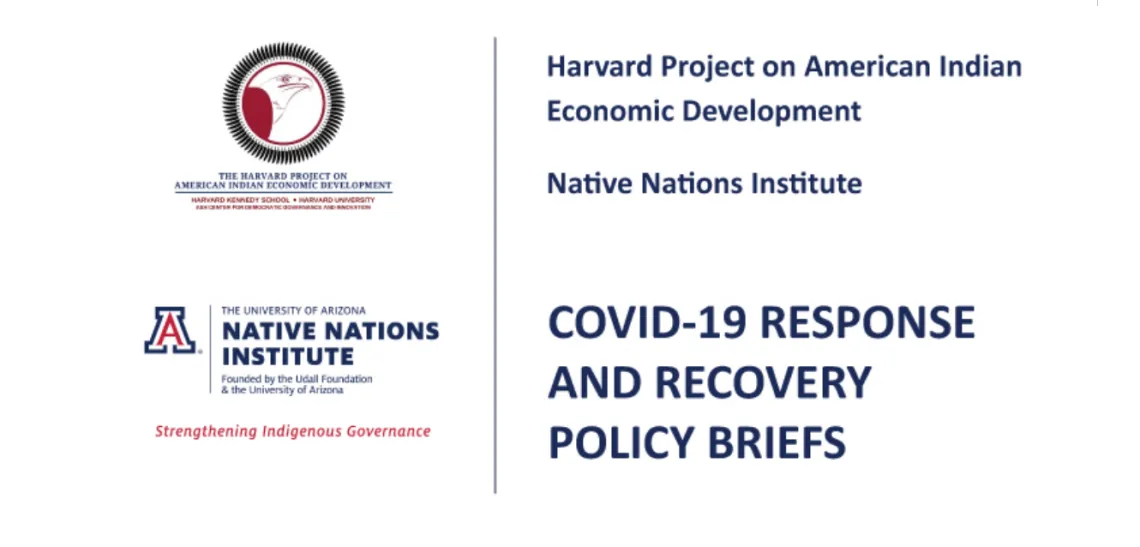Policy Brief: Dissecting the US Treasury Department’s Round 1 Allocations of CARES Act COVID‐19 Relief Funding for Tribal Governments
May 1, 2020
Image

In the analysis below, we have followed this “recipe” using the publicly available IHBG information from the Department of Housing and Urban Development (HUD) website that explains the IHBG funding formula.5 Key takeaways from our analysis include:
- Different tribal and reservations population data series give rise to different allocations of CARES Act dollars. The particular population choice has significant impacts on the amount of dollars received by certain tribes.
- The Department of the Treasury chose to use tribal population numbers derived from racial population data that ties to HUD’s block grant formula for allocation of housing monies. This population choice by Treasury resulted in a number of tribes receiving de minimis payments that are clearly not reflective of the population of tribal citizens or of tribal needs.
- Further, in failing to reflect actual counts of enrolled tribal citizens, Treasury’s decision to use racial population data from HUD’s IHBG dataset demonstrably produces arbitrary and capricious allocations of CARES Act funds across tribes.
- None of the publicly available data series are reliable for the purposes to which Treasury has tried to put the HUD IHBG data. Each such data series results in arbitrary and capricious allocations of the CARES Act monies.
- The case is strong that an appropriate allocation rule would employ the current tribal enrollment figures submitted by tribes to the Treasury Department in mid‐April.
Citation
Akee, Randall K.Q. Eric C. Henson, Miriam R. Jorgensen, Joseph P. Kalt. May 18, 2020. Policy Brief: Dissecting the US Treasury Department’s Round 1 Allocations of CARES Act COVID‐19 Relief Funding for Tribal Governments. Cambridge and Tucson: Harvard Project for American Indian Economic Development and Native Nations Institute.

